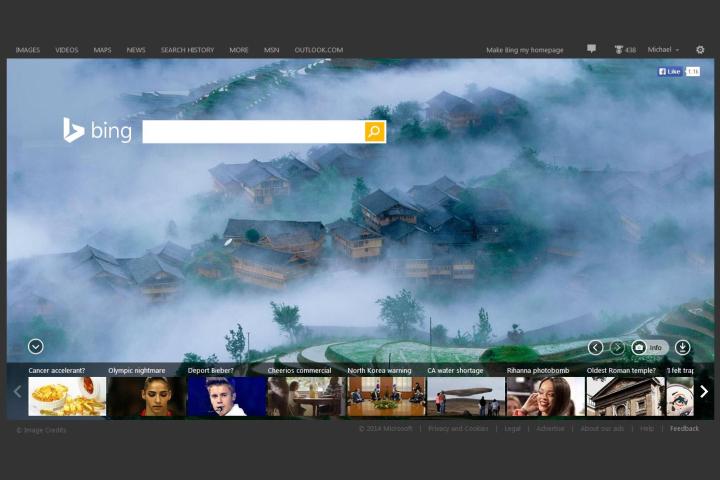
Related: More signs point to Cortana coming to Windows 9
In the post, which is entitled “Let’s Have a Conversation,” Microsoft talks about how human beings are prone to naturally asking follow up questions when they engage in conversation. For instance, if you were to ask a history teacher when World War II started, a natural follow-up question would be one where you asked when it ended, how it started, and so on. Microsoft says that Bing is now able to interpret, and answer these sorts of questions.
Related: Windows 9 Threshold is coming: Here are the latest rumors, leaks, news, and more
Microsoft’s example involves President Obama. In their post, they ask Bing “Who is the president of the United States.” After pulling up that information successfully, Microsoft then shows an image of a user asking Bing “Who is his wife.” Bing replies with “Michelle Obama,” and even provides the year the two were married.
From there, other images show a user asking Bing two more follow-ups, like “How tall is she,” and “Who is her brother.” Bing knocks both of those questions out of the park.
“These improvements build on extensive work we have done to build out the Bing platform including investments in entity and conversational understanding,” Ke says. “This is a long journey, and we expect to deliver a number of additional improvements in the days ahead.”
This may seem like a minor improvement, but the little things can add up. Asking a search engine “How tall is she” is easier than asking “How tall is Michelle Obama.” If you type thousands of characters per day, as many people do these days, these improvements can pay off big time down the road in the form of less strain on your digits, palms, and wrists.
Editors' Recommendations
- How to search ChatGPT conversations
- Microsoft just made Paint useful again
- Microsoft Bing and Edge are getting a big DALL-E 3 upgrade
- Microsoft ‘special event’ set for September – Surfaces and AI announcements likely
- Bing Chat fights back against workplace bans on AI


